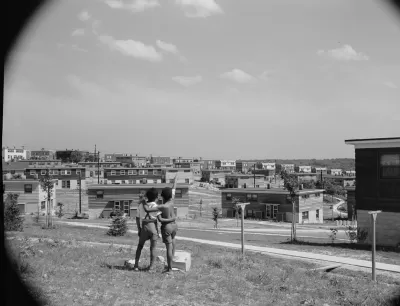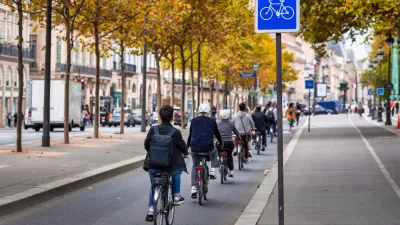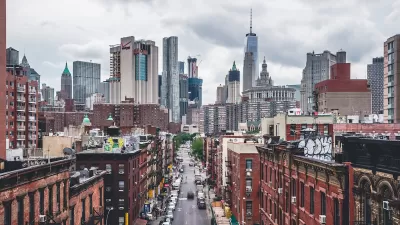Change doesn’t happen accidentally. Who are the people shaping cities and communities through the Covid-19 pandemic and beyond?

The world has changed in a lot of ways since Planetizen last surveyed readers to create a list of Most Influential Urbanists in 2017, and so has urbanism. The Covid-19 pandemic highlighted existing problems faced by cities and communities, created new ones, and brought to light structural inequities and vulnerabilities we previously ignored.
Now more than ever, planning and its associated fields can play a crucial role in building healthier, more resilient, more equitable, and more sustainable cities. From public health advocates to housing reform activists, safe streets champions, and disability rights advocates, people from a wide range of communities and professional fields are challenging the status quo and demanding solutions to urban problems that create more equitable outcomes for all residents.
In 2017, we called on readers to nominate people from a broad range of disciplines as well as ethnicities and genders, but we recognize the list wasn’t sufficiently diverse. This time around, we want to further amplify the work and influence of communities of color, women, and the LGBTQI+ community in shaping cities and making them more inclusive, accessible, and safe and highlight the efforts of leaders and organizations that have catalyzed changes at every level of government. We hope our list can reflect the changing demographics of the planning field as well as the growing recognition that the built environment and public policy have significant, and often unequal, impacts on people and communities.
To submit your nominations, please send an email to [email protected] with the subject line “Influential Urbanists.” Please share this call widely with the communities you are part of. Also feel free to join the discussion with @planetizen and by using the #topurbanist hashtag on Twitter. We'll release the official results of the “Most Influential Urbanists” poll, and let the voting commence, during the last week of May.

Alabama: Trump Terminates Settlements for Black Communities Harmed By Raw Sewage
Trump deemed the landmark civil rights agreement “illegal DEI and environmental justice policy.”

Study: Maui’s Plan to Convert Vacation Rentals to Long-Term Housing Could Cause Nearly $1 Billion Economic Loss
The plan would reduce visitor accommodation by 25% resulting in 1,900 jobs lost.

Planetizen Federal Action Tracker
A weekly monitor of how Trump’s orders and actions are impacting planners and planning in America.

Passengers Flock to Caltrain After Electrification
The new electric trains are running faster and more reliably, leading to strong ridership growth on the Bay Area rail system.

Texas Churches Rally Behind ‘Yes in God’s Back Yard’ Legislation
Religious leaders want the state to reduce zoning regulations to streamline leasing church-owned land to housing developers.

Grand Rapids Mayor Proposes Garage Conversion Plan
The mayor says allowing homeowners to convert garages to dwelling units could alleviate the city’s housing shortage.
Urban Design for Planners 1: Software Tools
This six-course series explores essential urban design concepts using open source software and equips planners with the tools they need to participate fully in the urban design process.
Planning for Universal Design
Learn the tools for implementing Universal Design in planning regulations.
Caltrans
Smith Gee Studio
Institute for Housing and Urban Development Studies (IHS)
City of Grandview
Harvard GSD Executive Education
Toledo-Lucas County Plan Commissions
Salt Lake City
NYU Wagner Graduate School of Public Service





























